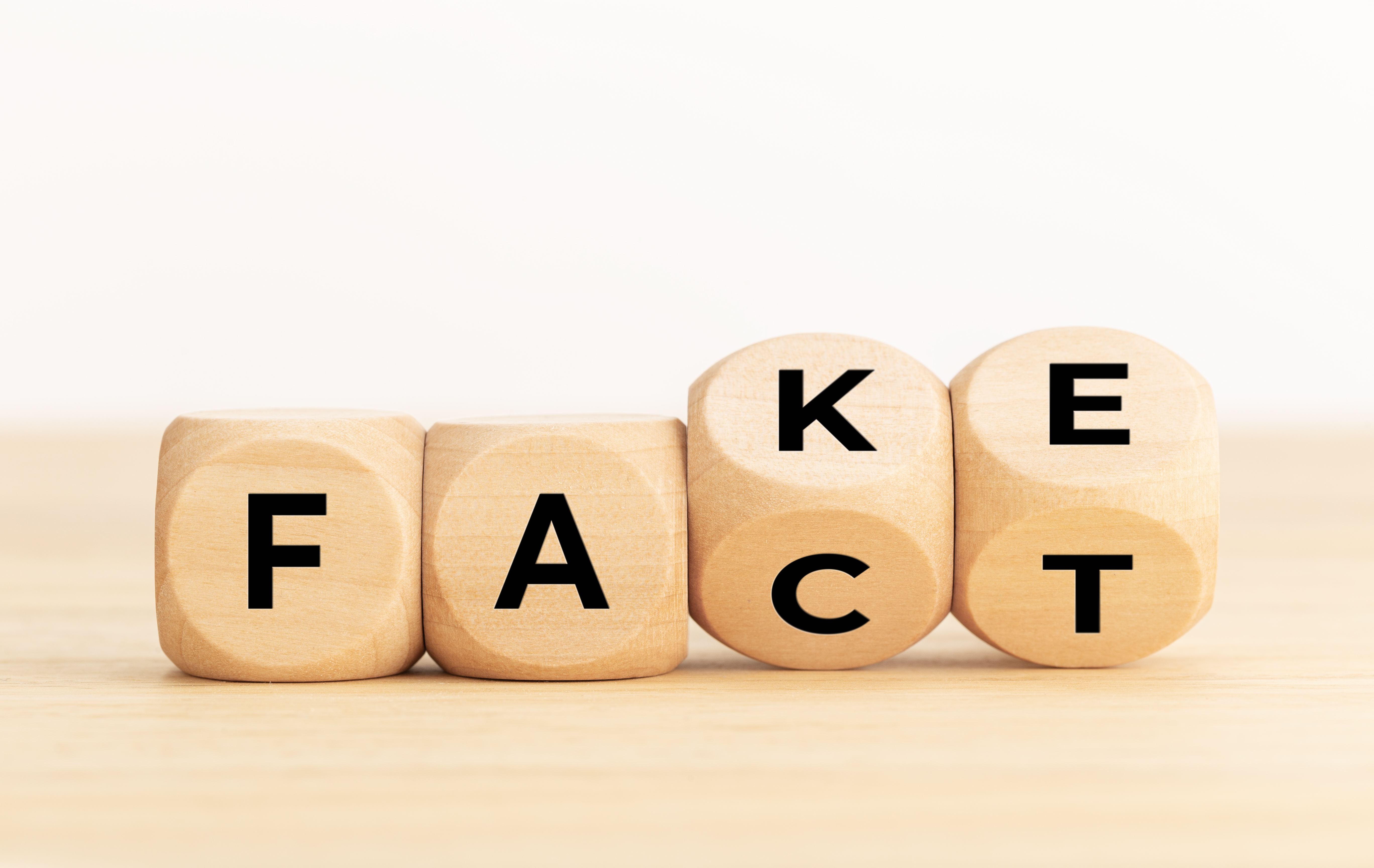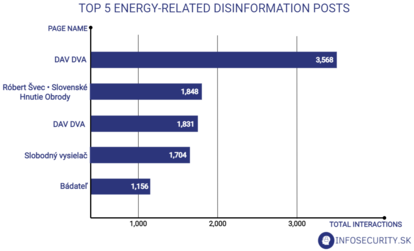DISINFORMATION
Spiking gas prices trigger the resurgence of energy-related disinformation

2021 is coming to an end, but there seems to be no end to disinformation. The disinformation narratives of the last weeks serve as a condensed version of the harmful content we have seen throughout the year, ranging from Kremlin deceptions about the energy crisis to opportunistic abuse of the pandemic situation.
Infosecurity.sk presents an overview of disinformation trends that have been on the rise in information space in the past two weeks:
- The pro-Kremlin outlets are back arguing that Russia has never used its energy resources as a means of coercion.
- The blame for the current record gas prices is being shifted to the EU. Similar to the past, the EU's Green Deal is the main target of attacks as the alleged main trigger of the current crisis.
- The recent Russian ultimatum to the US and NATO is being portrayed as an olive branch extended to the West in the hope of a peaceful Europe.
- Russia is portrayed as a guarantor of peace. The West plays the role of an aggressive power bent on stationing US missiles in Central and Eastern Europe.
- With the third booster shots came various pandemic-related disinformation narratives and conspiracy theories. These range from ones claiming that the government is using the vaccination to test how much abuse people could take, to "classic" conspiracies related to “big pharma” and “deep state”.
New pretext, old narratives
The last two weeks of the year have been marked by massive one-sided attacks on EU energy policy. The pro-Kremlin outlets again argue that Russia has never used its energy resources as a means of coercion and that the EU is to blame for the current situation.
Although the topic of energy crisis has taken a back seat after the migrant crisis and tensions over Ukraine began to dominate the news, the recent spike in gas prices has led to a resurgence of energy-related disinformation.
European gas prices have hit a new record after a pipeline bringing Russian gas to Germany shifted flow to the east - a move the Kremlin says has no political implications. Putin also claimed the EU can only blame its own policies for record gas prices.
Local disinformation actors also follow the same rhetoric. The blame is once again being shifted to the EU. As in the past, the EU's Green Deal is the main target of ridicule as the alleged main trigger of the current crisis.
The pro-kremlin websites even put forth several catastrophic scenarios that will occur if the EU does not abandon its "Russophobic" policy. Factory closures, extreme price rises, shortages of basic commodities and frequent power outages are to occur. The only chance to avoid the crisis, according to the pro-Russian narratives, is to end the politicisation of the energy sector and speed up the certification and launch of the Nord Stream 2 pipeline.
The resurgence of disinformation narratives related to energy is also evident in the data collected using the analytical tool Crowdtangle. The data was obtained by searching for the keyword “gas”.

As can be observed on the graph above, the top Facebook disinformation posts about energy, ranked by their total number of interactions (likes, comments, and shares), come from a variety of actors.
Two of the posts come from the Facebook page DAV DVA, which regularly spreads harmful content. The posts blame the EU and the Slovak government's "hyper-Pro-Western" fixation for the crisis. Serbia is portrayed as a country that has exemplary relations with Russia, thanks to which it was able to reach an agreement on maintaining gas prices.
Similarly, the next post, shared on the personal blog of national-conservative politician Róbert Švec, blames the crisis on the “Brussels criminals” and claims that because of their anti-Russian propaganda Slovakia “will end up like North Korea, where the electricity is switched off overnight and hot water only runs for a few hours a day.”
The same rhetoric can be found in other posts, both Bádateľ and Slobodný vysielač shift the blame on the EU and the alleged russophobic and pro-Western orientation of the Slovak government.
NATO, US and Ukraine among the usual targets
Amid the continuous escalation of Russian military build-up along Ukraine's borders, the pro-Kremlin media continue to target Ukraine, NATO and the West. Within this topic, we have witnessed the combination of various disinformation narratives. The common denominators were the devaluation of Ukrainian statehood, anti-Westernism, and the victimization of Russia.
The activities of the local disinformation media bore a striking resemblance to those of the Kremlin press office. These actors have uncritically and obsequiously quoted statements by Russian officials, many of whom denied the troop surge and portrayed Ukraine as a failing state crying hysterically about a Russian invasion. Some even falsely accused Ukraine of genocide against the Russian-speaking population in the Donbas.
However, it was not only Russian politicians who were quoted by the local disinformation media. Slovak politicians of the extreme poles of the political spectrum were also given space to express their pro-Russian views. One of them was Milan Uhrík, a member of the European Parliament. In line with the Kremlin's rhetoric, the MEP accused the EU of pursuing a confrontational policy towards Russia and called for "peace among the Slavs" in his speech in Brussels.
NATO, the US and the West in general were also among the usual targets. The recent Russian ultimatum made to the US and NATO were a particularly hot topic. The ultimatum was presented as some kind of generous, conciliatory concept of peaceful development in Europe proposed by the so-called guarantor of European peace – Russia.
Putin's own policy towards Ukraine is paradoxically described as "coherent and peaceful". The West, as usual, plays the role of an imperial power eager to deploy US missiles in Central and Eastern Europe.
In reality, however, Russia refused to provide any security guarantees and threatened with escalation in Ukraine while continuing to insist NATO rollback. Narratives described above aim to legitimise the Kremlin's moves and create the false impression that Russian influence is desirable and necessary to settle the "chaos" on Ukrainian territory.
Moreover, they seek to portray Russia as the only geopolitical actor capable of securing Ukraine's development and prosperity.
The never-ending stream of pandemic conspiracies
The COVID-19 pandemic has long been a popular topic for disinformation media, and the end of the year was no different.
With the third booster shots came narratives that the government is using vaccination to test how much abuse people can take, and to trample on democratic principles and establish totalitarianism.
Even the "classic" conspiracies like the vaccine experiments on children and microchipping were present. Some outlets have linked the lockdown and pandemic restrictions to conspiracy theories which claimed that the pandemic is being artificially induced by pharmaceutical companies and global elites whose goal is to increase their wealth and control over the masses.
Project Infosecurity.sk organised by STRATPOL – Strategic Policy Institute and Slovak Security Policy Institute, which is supported by the Prague office of the Friedrich Naumann Foundation for Freedom, continuously monitors the activities of both Slovak and foreign disinformation actors, but focuses mainly on the former. The project activities are built upon daily monitoring of emerging disinformation, hoaxes, and conspiracy theories in the online information space. This approach allows the analysts to identify disinformation posts and narratives that resonated with the public the most, as well as to find out where they originated, and how they spread and evolved on social media. The report takes the form of a bi-weekly summary of arising trends in the spread of malicious information content online. Based on that, Infosecurity.sk can warn the public about emerging and current trends in the field of disinformation, manipulation, and propaganda.

